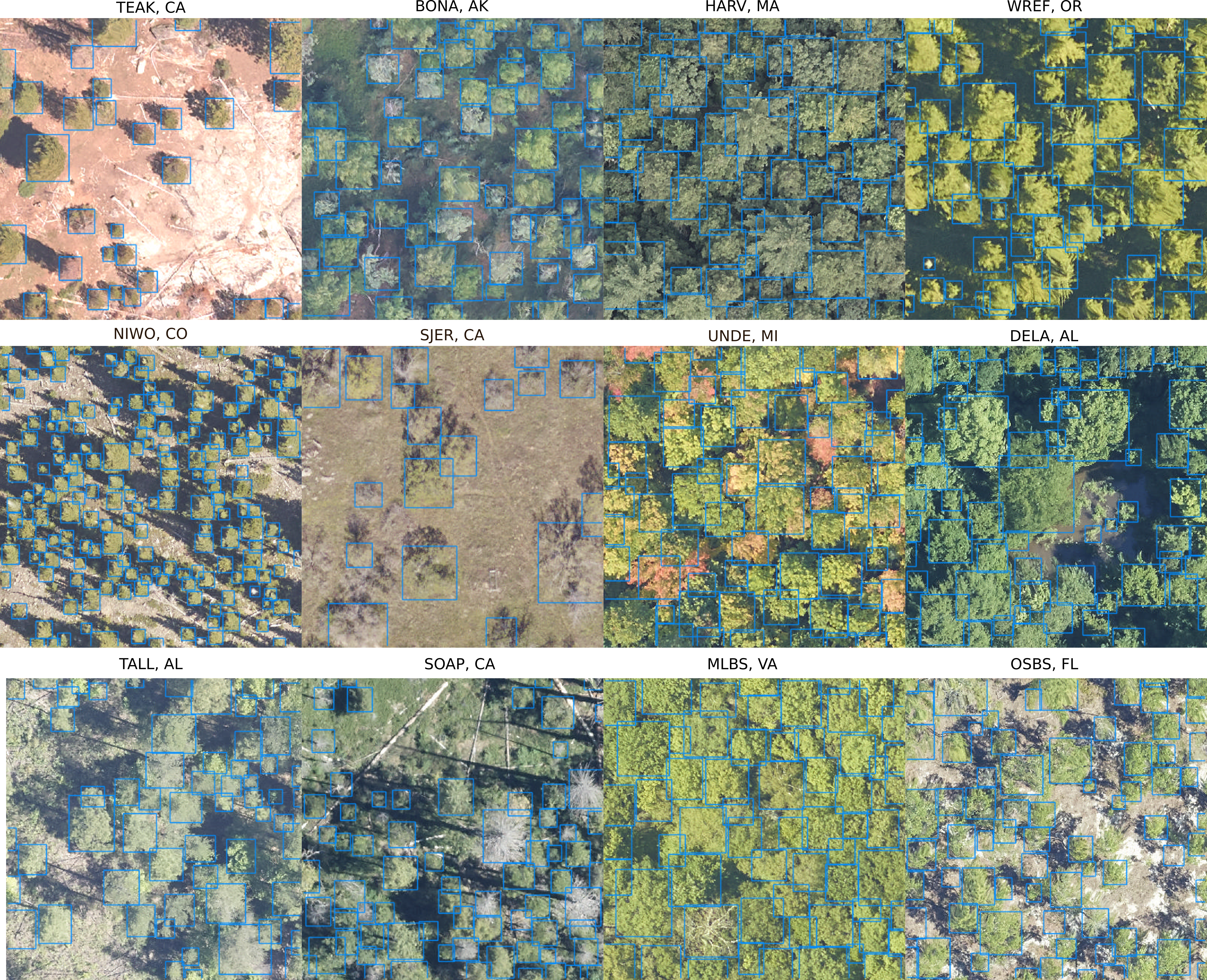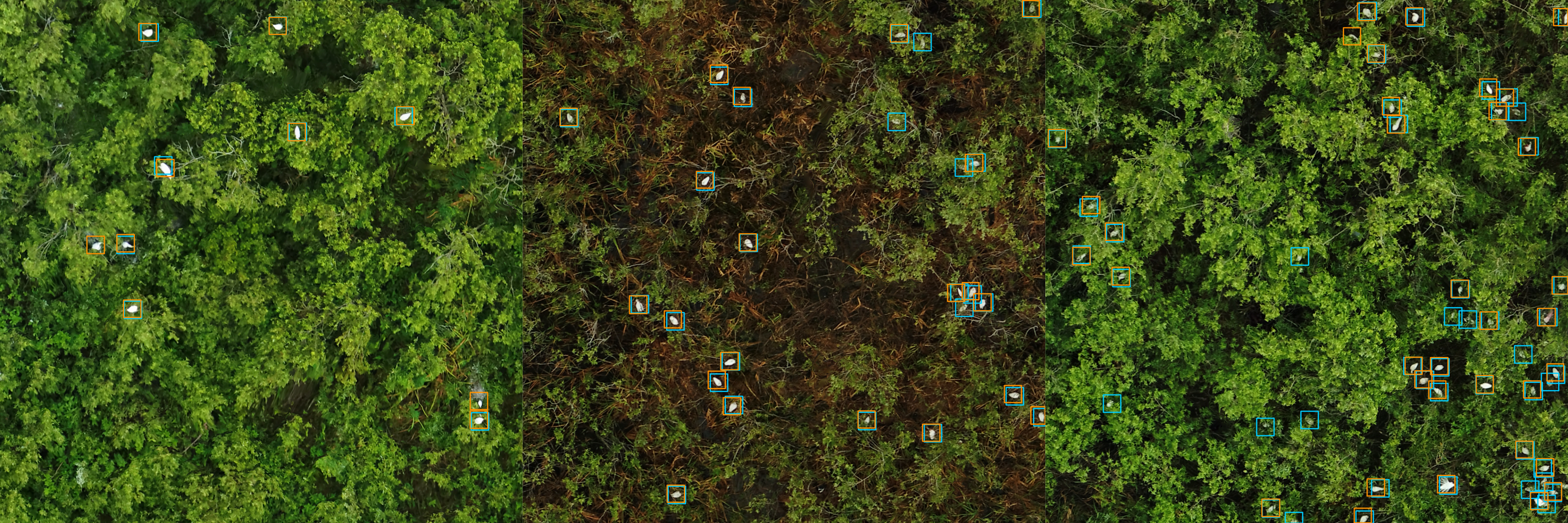| Name | Downloads | Version | Platforms |
|---|---|---|---|
 |
 |
 |
 |
DeepForest is a python package for training and predicting ecological objects in airborne imagery. DeepForest currently comes with a tree crown object detection model and a bird detection model. Both are single class modules that can be extended to species classification based on new data. Users can extend these models by annotating and training custom models.
DeepForest is documented on readthedocs
DeepForest uses deep learning object detection networks to predict bounding boxes corresponding to individual trees in RGB imagery. DeepForest is built on the object detection module from the torchvision package and designed to make training models for detection simpler.
For more about the motivation behind DeepForest, see some recent talks we have given on computer vision for ecology and practical applications to machine learning in environmental monitoring.
Given the enormous array of forest types and image acquisition environments, it is unlikely that your image will be perfectly predicted by a prebuilt model. Below are some tips and some general guidelines to improve predictions.
Get suggestions on how to improve a model by using the discussion board. Please be aware that only feature requests or bug reports should be posted on the issues page.
We welcome pull requests for any issue or extension of the models. Please follow the developers guide.
Free software: MIT license
Remote sensing can transform the speed, scale, and cost of biodiversity and forestry surveys. Data acquisition currently outpaces the ability to identify individual organisms in high-resolution imagery. Individual crown delineation has been a long-standing challenge in remote sensing, and available algorithms produce mixed results. DeepForest is the first open-source implementation of a deep learning model for crown detection. Deep learning has made enormous strides in a range of computer vision tasks but requires significant amounts of training data. By including a trained model, we hope to simplify the process of retraining deep learning models for a range of forests, sensors, and spatial resolutions.



